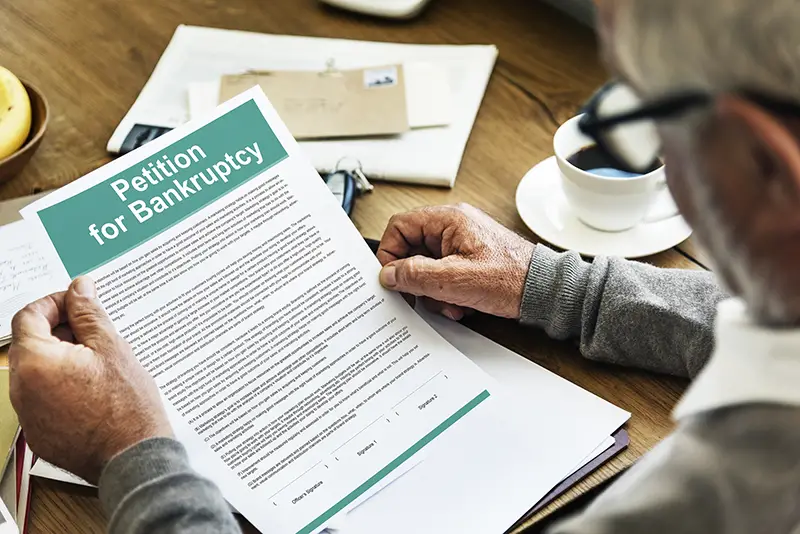Click here to get this post in PDF
Bankruptcy is a stressful process that no one would ever do if they didn’t have to, and many different elements enhance that. One thing that people have to worry about is what kind of bankruptcies there are, and what types are right for their situation. Most people know of Chapter 7 and Chapter 13 bankruptcy, but the other types are much less well known. If you ever do find yourself in this awful situation, people like these Pennsylvania bankruptcy lawyers can help you figure out the best course of action when facing bankruptcy.
In the article, we will examine the various options available for you.
The different types of bankruptcy
Chapter 7
This is the most common type of bankruptcy for individuals, and it involves a court-appointed trustee who oversees the liquidation of your assets. This is done to help get creditors off your back. After this, your unsecured debt — medical bills and/or credit cards — is usually going to be erased. Debts, such as taxes and student loans, are not forgiven through bankruptcy, so be mindful of that. The only way you can file Chapter 7 is if the court deems that your earnings are too low to possibly pay back your debts. Determining what is “too low” will be based on where you reside, so keep note of that. So, if you are in Wisconsin for example, you may want to engage Chapter 7 Bankruptcy Lawyers Milwaukee, who will be aware of the local laws too.
A good advantage of Chapter 7 is that it is completed in approximately 4-6 months, though it will stay on your credit report for 10 years.
Chapter 9
This bankruptcy approach is meant for school districts, towns, and cities to reorganize their debts through a repayment plan. So if you are working as part of a representative for any of these groups, Chapter 9 may be a solid approach for you.
Chapter 11
Much like Chapter 9 bankruptcy, Chapter 11 bankruptcy is meant to help reorganize the debts of an organization, such as a business or corporation. As part of this, the business creates a plan for their continued operation that would also allow them to pay this off. Of course, this is only going to work if both the court and the creditors agree with the plan. While this type of bankruptcy is typically for a business or corporation, it is not exclusively so. For instance, someone with a lot of money and property, such as a celebrity, may find that Chapter 11 bankruptcy is the best option for them.
Chapter 12
This repayment plan is specifically for farmers and fishers, and it specifically helps them avoid losing their assets and foreclosing on their property. It has similarities to Chapter 13 bankruptcy (discussed below), though it has higher debt limits.
Chapter 13
Chapter 13 bankruptcy is the other common type of bankruptcy, along with Chapter 7. Unlike Chapter 7, which deals with eliminating debt, Chapter 13 bankruptcy is intended to reorganize your debt instead. Essentially, the point of Chapter 13 bankruptcy is to structure a payment plan to pay off your debts over time (typically between 3 and 5 years in length). This plan may also involve the court limiting your budget, as well as monitoring your spending. A Chapter 13 bankruptcy lawyer will assist you to process any court proceeding and related matters.
This kind of bankruptcy may be preferable for people who can actually get around to eventually paying off their debts, but simply need some assistance in pulling it off. By going with this over Chapter 7 bankruptcy, you do not have to worry about losing money and assets as part of the dissolution of most of your debts. On top of that, in filing Chapter 13, you can stop a foreclosure, thus allowing you to catch up with your mortgage. Just note that a Chapter 13 filing will stay on your credit score for seven years, and you have to wait two years to file again after the first one.
Whether you may qualify for Chapter 13 bankruptcy is going to depend on various factors. If the unsecured debt of the filer is less than $419,275, and the secured debt is less than $1,257,850, then the filer is good to go. Well, so long as you are up to date on your tax filings, anyway.
Chapter 15
Chapter 15 bankruptcy is specifically for bankruptcy issues that go beyond our borders, allowing foreign debtors to work within the U.S. courts to handle their bankruptcy case. This is a rather easy thing to determine whether it applies to you.
Which bankruptcy type is the right fit for you?
While several of the bankruptcy types are pretty evident whether you should work with them, when it comes to Chapter 7 bankruptcy and Chapter 13 bankruptcy, it is a little more complicated. If you are not sure, be sure to get in contact with bankruptcy attorney Jerry Smith. He can help you figure out the best choice for you, as well as help you get through the bankruptcy process with the best result you can get.
You may also like: Changes to Bankruptcy Laws: Will They Affect You?
Image source: Rawpixel.com

